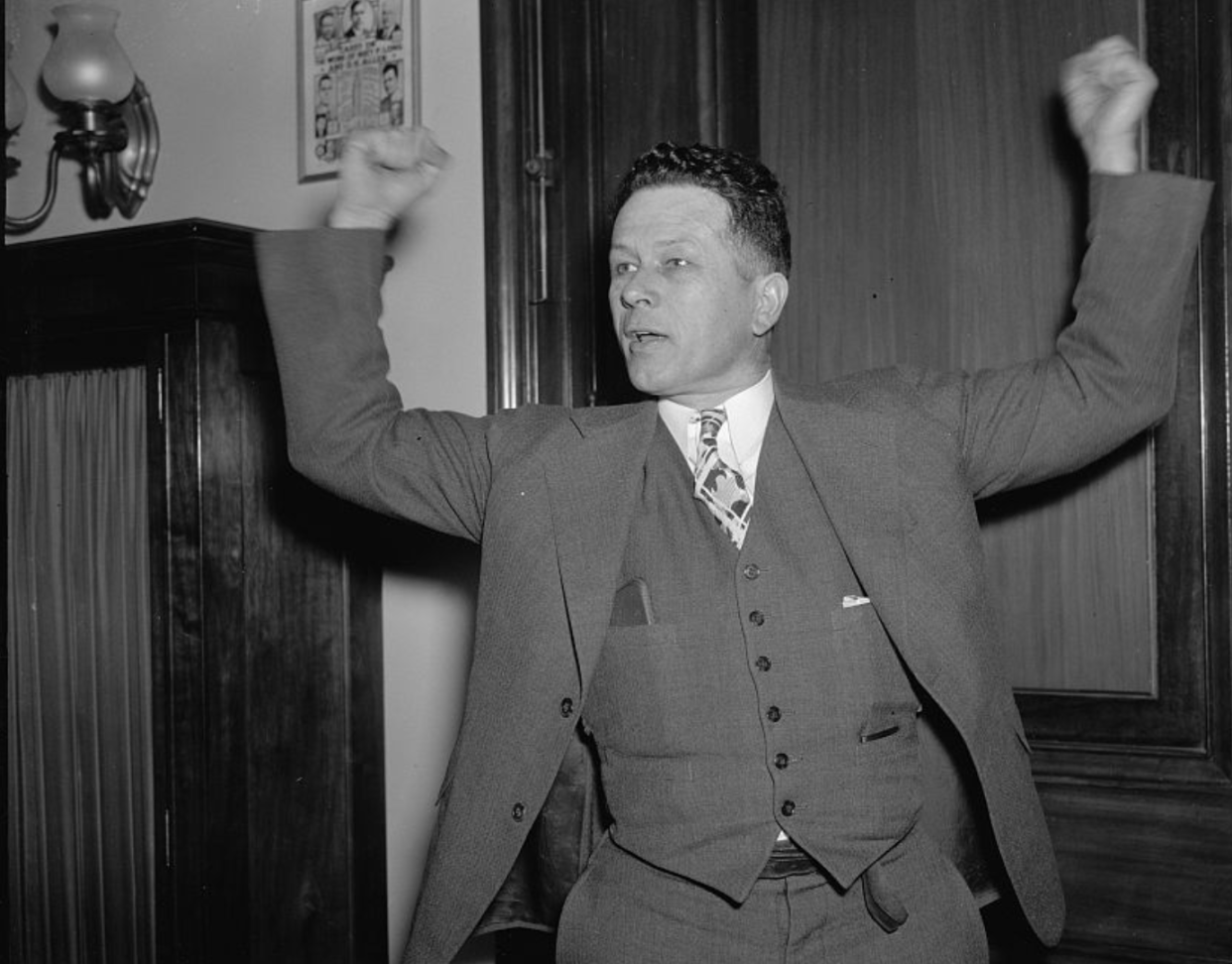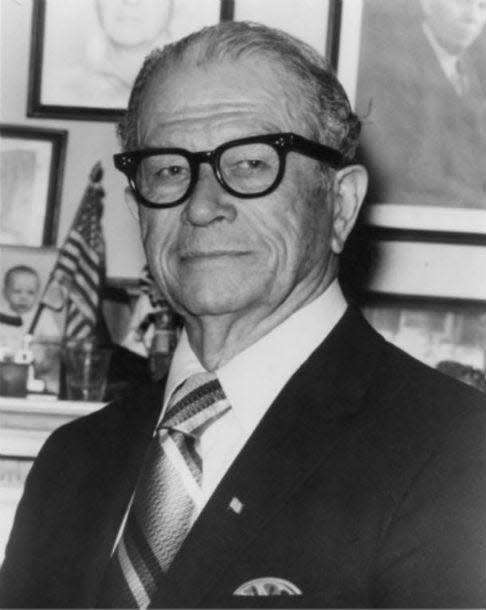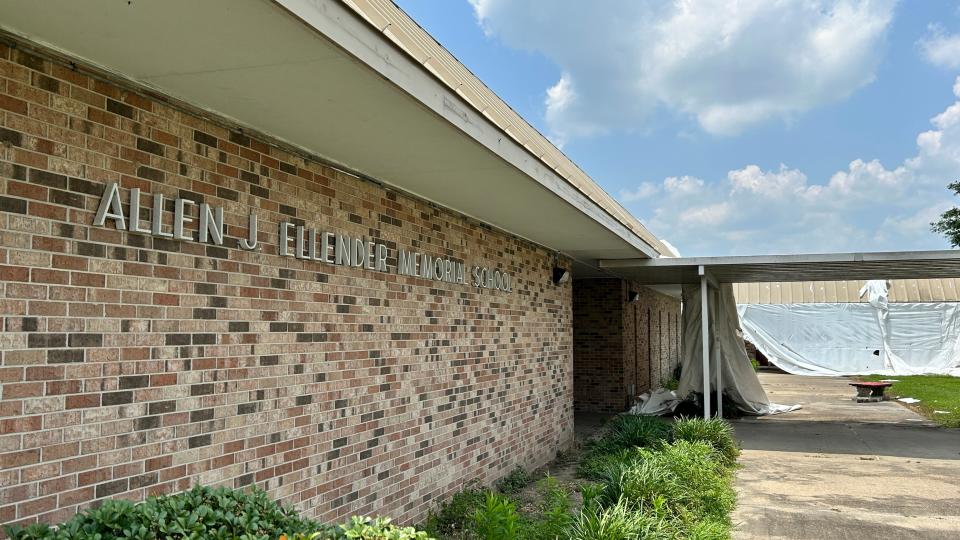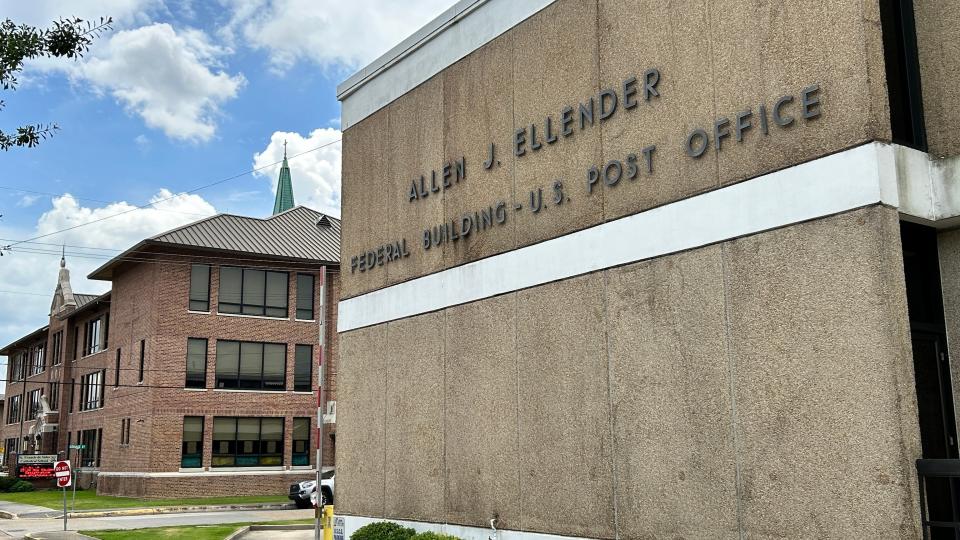Ellender High School in Houma named for powerful politician and lifelong racist

The late U.S. Sen. Allen J. Ellender had a reputation for being an accomplished Cajun cook, a friend to the sugar industry and a lawmaker who knew how to bring the bacon home to his home state of Louisiana.
But the historical record makes other things clear about the namesake of Ellender Memorial High School in Houma.
Ellender was an unabashed racist who tried to roadblock major civil-rights legislation, spoke openly about his disdain for Black people and came to the defense of a viciously bigoted politician who had encouraged violence against them.
The Equal Justice Initiative, a national civil-rights group, lists Ellender among 32 “Leaders of White Supremacy” in its report on racial segregation in America. The U.S. Senate’s official website biography notes that “throughout his Senate career, Ellender remained a staunch segregationist and opposed all civil-rights measures.” Another page on the official Senate site refers to him as a “self-confessed white supremacist.”
Yet a public high school and a federal office building in Houma, as well as a library at Nicholls State University in Thibodaux, bear his name. An elementary school in Marrero is named for Ellender. The Jefferson Parish School Board entertained a move to change the name in 2021 but rejected it. No such suggestion has officially been made in Terrebonne Parish.
Across the nation: 82 schools have removed their racist namesakes since 2020. Dozens now honor people of color.
At least one member of the Terrebonne Parish School Board maintains the time has not only come to change Ellender High’s name but that recent circumstances make the case easier to present.
Asked about the matter, District 1 board member Michael LaGarde said in an interview that since the east Houma school is being rebuilt due to severe damage from Hurricane Ida, a name change is an idea whose time has come.
“He did not like Black people, and a look at his career shows he was not only a racist but a proud racist,” LaGarde said of Ellender. “Since we need to rebuild the whole school, we are going to have to have a name change.”
LaGarde is a former employee of the school, which is located in his district. Of Terrebonne’s four public high schools, Ellender is the only one where Black students outnumber whites and has the greatest minority enrollment at 76%, according to data on file with the state Education Department.
LaGarde said he had discussed changing the school’s name with former Superintendent Philip Martin, but nothing ever came of the conversation.
“A lot of the public doesn’t know the history,” LaGarde said.
A Southern Dixiecrat

Born in 1890 in Montegut, Allen Joseph Ellender earned a law degree from Tulane University in 1913, the same year he began serving as city attorney of Houma. Two years later he became district attorney of Terrebonne Parish and eventually was elected state representative. Several twists of fate resulted in Ellender claiming political ally Huey P. Long’s U.S. Senate seat in 1936, vacant due to the latter’s assassination.
Once in the Senate, where he served until his death in 1972, Ellender focused heavily on agricultural matters, which were of huge concern to farmers of cotton, sugar and other crops in Louisiana. Ellender, a Democrat, was also instrumental in passing legislation that created the federal food stamp and free lunch programs, which continue today.
Two years into his first term, in 1938, Ellender played a major role in a Southern filibuster against an anti-lynching bill that failed, one of many meeting a similar fate in Congress until one was finally passed in 2022.
Opposing anti-lynching bill

As part of his presentation Ellender proffered statistics purporting to show that arrests of Black people for certain crimes were, per-capita, lower in the South than in the North.
“I state to the Senate that these figures conclusively prove that the South knows how to handle the Negro problem much better than our Northern neighbors,” the Congressional Record quotes Ellender as saying. “The bill is not being advocated because it will prevent lynching but only to satisfy the demands of a few Negro politicians, who are likely to make further requests should they be successful in their present attempt to humiliate the South.”
Anti-Black rioting by whites in Northern cities, Ellender argued, could be attributed to the recognition of Black equality in those places, blaming Blacks who committed such offensive acts as swimming at public beaches for the violence that fell upon them.
“Senators, the fact I have been arguing, that certain privileges are being ostensibly accorded to the colored people by the laws of many Northern states, and the white people of those Northern states are refusing to recognize those privileges,” Ellender said. “I say they are accorded simply to mislead the colored people, with the result that they get them into trouble when demanding equality, and the result is race riots.”
In 1946, Ellender vigorously defended Sen. Theodore Bilbo of Mississippi during Senate hearings on Bilbo’s attempts to thwart Black people from voting, including public statements deemed as calls to violence.
Bilbo had called on “every red-blooded Anglo-Saxon man in Mississippi to resort to any means to keep hundreds of Negroes from the polls. … And if you don’t know what that means you are just not up on your persuasive measures.”
'The Southern Manifesto'

In 1956, along with 18 other senators, Ellender signed the “Southern Manifesto,” a statement of purpose seeking to overturn the historic Brown v. Board decision mandating racial desegregation of the nation’s public schools, contrary to the former doctrine of “separate but equal.”
“The Supreme Court of the United States, with no legal basis for such action, undertook to exercise their naked judicial power and substituted their personal political and social ideas for the established law of the land,” the Manifesto states. “This unwarranted exercise of power by the Court, contrary to the Constitution, is creating chaos and confusion in the States principally affected. It is destroying the amicable relations between the white and Negro races that have been created through 90 years of patient effort by the good people of both races. It has planted hatred and suspicion where there has been heretofore friendship and understanding.”
Ellender also opposed the Civil Rights Act of 1964, noting that ensuring voting rights — as one example — would be horrendous for many in the South, in particular those in counties or parishes with majority Black populations.
“The few whites in these counties would be scared to death to have Negroes in charge of public office without qualification,” Ellender said.
After the law passed, Ellender did preach good counsel to people opposed to it, encouraging them to eschew violence.
“Any other course is foolhardy and indefensible, much more indefensible and dangerous than it might have been at some other time in our nation's past,” Ellender said in a radio message broadcast throughout Louisiana, referenced in the New York Times of July 5, 1964. “The coming months will be trying ones for all of us. … But the difficulty must be met with calm and reason, and not with violence and emotion.”
Jackie Robinson raises concerns

Ellender — who desired to visit every country in the world — often went on travel junkets, which in 1962 included a whirlwind tour of the African continent.
“Ethiopia would have nothing if it weren't for the Italians. Africans will probably get somewhere someday, but it'll take time,” Ellender told the press during the trip. “The only Black man I know of with the stuff it takes to be a United States Senator was Booker T. Washington, but he had a white mother and is dead now.”
At a news conference in Rhodesia, he stated “the average African is incapable of leadership except through the assistance of Europeans.”
Baseball legend Jackie Robinson — then retired — called out the Ellender statements in his column, on the pages of the Amsterdam News, one of the nation’s oldest Black-owned newspapers, according to an academic paper on Robinson’s civil-rights advocacy. Robinson expressed disappointment that Kennedy did not address and condemn the remarks. He also criticized Kennedy in a letter for appearing too cozy with segregationist Dixiecrats like Ellender, though the column did not mention the senator by name.
Despite the well-publicized history of Ellender’s opposition to racial equality, some members of the Terrebonne Parish School Board might take some convincing to make Michael LaGrade’s desire to have the school renamed a reality.
Some board members uninterested in name change
Some said in interviews that they are aware of “skeletons” in Ellender’s closet, perhaps not knowing that the closet doors were so clearly open.
“Senator Ellender gave us multiple pieces of property, not expecting anything to be called after him,” said board member Roger Dale DeHart. “Renaming schools is not going to solve our problems and nobody in this world is perfect.”
Board member Debi Benoit said she considers herself a “traditionalist” and bemoans the number of name changes that abound, including those of banks and stadiums, and does not approve of name changes for schools.
“Senator Ellender did a lot of good stuff, he fought a lot for this parish,” Benoit said. “If he had any sins for the things that he did as far as segregation was concerned, that was the world that he lived in then; it is not what we have today. I don’t believe in taking away the honor.”
Next in the series: E.D. White Catholic High School in Thibodaux. John Kelly DeSantis is a freelance journalist and a former reporter for the Houma Courier and Thibodaux Daily Comet.
This article originally appeared on The Courier: Ellender High in Houma named for powerful politician and lifelong white supremacist

